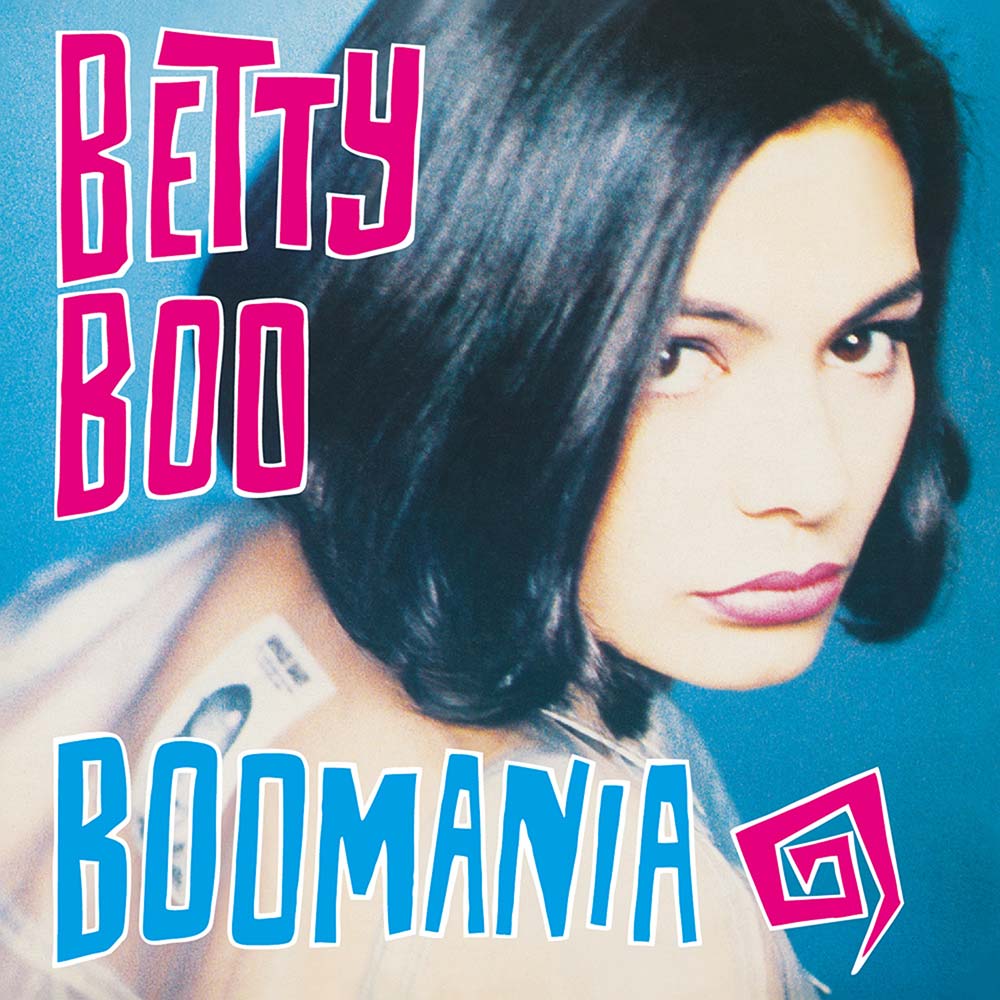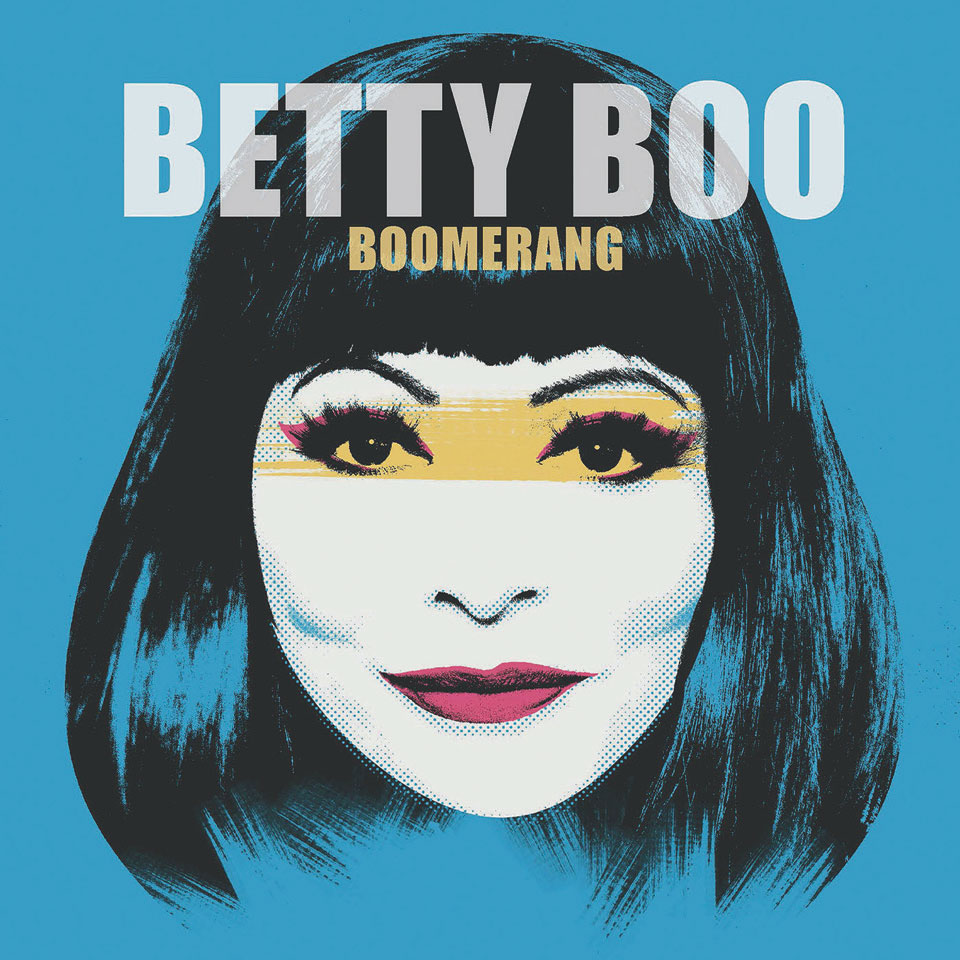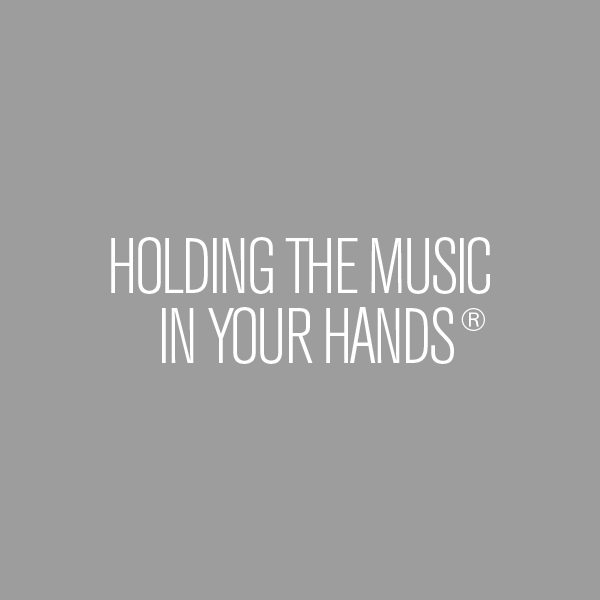Betty Boo on why she’s back after 30 years with a new album
“People used to think I lived in a spaceship!”

It’s exactly three decades since Betty Boo (aka Alison Clarkson) released a new studio album, a gap that would surely have even Kate Bush raising an eyebrow, but Boo is back with Boomerang, a new record co-written and produced with Andy Wright. SDE sat down with Betty to discuss what’s she’s been up to, why she’s returning to the spotlight and the song she wrote 20 years ago that won her an Ivor Novello award…
SDE: Hi Betty. Congratulations on the new album! I know you have been writing for other people, but aside from that, what have you been up to over the last couple of decades?
Betty: Well, a few things actually, I’ve been an executive producer on a couple of films, including The Art Of Rap, which was directed by Ice T and produced by my husband. The idea came about through me really, because I knew Ice T having been signed to Sire Records, years and years ago, through Seymour Stein. Many films have been made before about hip hop, the culture and stuff like this, but our film was more about rap as an art form. And so we had all the giants of rap in there like Eminem, Dr. Dre, Snoop, Ice Cube, Chuck D etc. I took quite a long time to make, but I went to Dr Dre’s house, which was the best thing I’ve ever done! [laughs].
I bet he’s got a nice house!
Yes, a very nice house. It’s up Sunset Plaza, so his house overlooks the whole of Los Angeles and you can see South LA from the top of his house, which is where he’s from.
So have you missed the music industry? Why come back now?
Well, in the back of my mind, I thought, I’ll make another record one day. And then five years would go by and I still hadn’t done it! I did so much clinical songwriting, which wasn’t particularly satisfying for me; working in Los Angeles with some of the big names – it was all a bit sort of soul destroying. I didn’t use any of the things that I use as myself, as Betty Boo, because that doesn’t relate to a generic artist. But it’s very difficult for some artists or even producers, just to get that what I did. There are lots of people out there who are really good at it, but it wasn’t really for me. I did enjoy some of it…
What’s that process like? It sounds kind of intimidating, going to LA and sitting in some producer’s studio, trying to create something together?
Yeah, it was. It’s a bit like a blind date, although not really… Some of these sessions were like Masterchef for songwriting [laughs]. You had to come up with stuff and if you didn’t, you’d really feel the pressure. I mean, lots of producers were making songs, writing and producing songs, on the fly. Everything was sounding great, even if it was shit! [laughs]
Is it one of those things where everyone wants a writing credit, including the tea boy who walks in at the time…?
There’s that and also, a lot of these teams have like, 20 writers for one song. Really? And then one day I just thought, I must try and do it myself again, because it did just come to an abrupt stop, with what happened in my family [Betty’s mum was diagnosed with terminal cancer] and everything. It would have been sad if I didn’t do it.
Have you knocked that all on the head then, doing songwriting for other people or do you still dip your toes in every now and again?
Well, you know, if the right artist came along, and I had enough in the tank! [laughs]. I’ve got a great writing partner [for the new album] in Andy Wright, who’s legendary. I’ve known him for years actually, but we haven’t actually written together until about three years ago. So having that rapport with somebody like him is amazing, because he’s so good at programming beats and also is a brilliant musician and keyboard player. He’s got this pop sensibility and he really brings out the best in me. There’s never been one day in the studio where you’re like “Nah, I’m not feeling that idea…”.
Did it all come back to you quite naturally? Obviously, you’ve been doing lots of writing anyway, for other people, so it wasn’t like, ‘I haven’t written a song for 20 years’, but did the Betty Boo clothes fit easily again, in terms of the spirit of what you were doing?
I was very nervous, thinking, ‘how am I going to find my voice again?’ And to find the confidence as well, to think “I can do this”. I was always of the mind that if you’ve been a pop star in your 20s, or in your teenage years, trying to come back when you’re 50 is crazy. It’s mad. It was unheard of, in our day. Like Cliff Richard… I remember seeing him on Top of the Pops back in the day and he was about 50 then! It wasn’t ridiculous to me, but he seemed old, if you know what I mean.
It’s like Paul McCartney seemed old in the ’80s when he was in his 40s. And now everyone’s raving about him as an 80-year-old at Glastonbury
I know! So I just thought, “no, you’ve got to really stop that attitude”. Artists like Rick Astley and Bananarama have paved the way for me. People have fond memories of their music and it was part of an era where people didn’t have mortgages and kids and they had a nice carefree life. So I drew some confidence from that and then when I started writing with Andy, the first song we wrote was great, so it was just building blocks from there, really,
When you were young, those songs and that attitude, it must have all been very natural to you at the time because I guess that’s who you were. Have you changed much over the years, or do you still feel like the same person? In other words, is it now ‘an act’ when it wasn’t before?
Well, you know, I do have to step outside who I am as an ordinary person. I’m never too personal… I don’t write love songs, as such.
I noticed that, because when I was listening to the new album, not that I was expecting this, but there’s no acoustic guitar ballad or the like, where you’re pouring your heart out? Because that isn’t what Betty Boo is…
No, that would really make me sick [laughs].. Everything that comes naturally to me, is… I just want a bit of escapism. It’s great having this genre of rap/dance/pop. I can cram words in that you wouldn’t ordinarily put into normal songs, so that’s the fun of it for me. When I am writing ‘normal’ songs, I do still have that rap mentality, where the rhymes I use are just a little bit different than your norm. So I wouldn’t rhyme “Lately” with ‘Maybe” and ‘Baby’… hang on, I did do ‘Where Are You Baby?” so I take that back! [laughs].
Did you have any concerns about how this kind of music would fit into the current landscape of what’s going on in pop?
Yeah, I have to admit, I did wonder, how will it fit? Somebody described it as “modern heritage” [laughs]. I just love pop music. I still listen to a lot of modern pop on Spotify playlists, every day. I’ll try and be up to date with what’s happening because I wouldn’t want to sound like an old fogey.
The thing is, no one really sells records anymore. Your first album was quite a big-selling record, but there’s not necessarily going to be the pleasure of having a platinum album or having a top 10 hit anymore. Does that bother you at all?
I’m learning every day how it works, because there are lots of different things that factor into making a record successful. There are so many unknown records that end up in a film or on an advert. And then young people, everybody, just rediscovers them. These days you have to you have to work hard at social media and things like that. It’s a bit weird. In the old days, like with Ziggy Stardust… He didn’t live in a street did he? He lived on a planet somewhere. And people used to think I lived in a spaceship! So not being mysterious anymore is a big thing for me, these days.
It’s a shame. Social media has taken down all the barriers, hasn’t it, in that respect?
And you just have to talk about mental health all the time. Everyone struggles with daily stuff, and people genuinely do have very bad problems, but we’re in a world where everyone talks about everything, and I mean, everything. That’s good… It just takes a bit of getting used to.
How do you look back on your first two albums? The first album was very successful and the second album, commercially anyway, didn’t repeat the success. Have you got enough perspective, to look back and try and understand, what might have gone wrong, if anything? Did you feel in control?
I felt in control of my music and my image and everything. I was very happy with how everything went. Looking back, the Boomania record, because it was on an indie label, it sounds how it came out of my bedroom, more or less. That record is very under-produced, very raw, very naive. And I think that’s what some people liked about it, because it wasn’t like anything else. It wasn’t the overproduced stuff that was in the charts. If you think about it, 1989/90 there was a real hangover of nasty American MOR rock. Really gross music and then dance came along and fused with ‘indie’. No offence to people who make MOR records, but it was an exciting time.
My first record is very under-produced, very raw and very naive and I think that’s what some people liked about it
Betty Boo
Then I signed to a major label, and perhaps my style diluted somehow, I don’t know. I mean, I was very happy with it. Madonna loved it, she though it was one of the best records she’d ever heard and wanted to sign me to Maverick on the back of it. I’m putting this record out on my own label called Betty Boo records. All the young artists do it now, because they don’t want to be slaves to a label.
A few years ago, you started doing 80s-type festivals. Did you enjoy doing that?
Yeah, I did. And I, I did one few weeks ago, actually, in Wales. It was one that was cancelled from a couple of years ago, and it was really good fun. But they were a great way of me knowing whether people like me, or if I enjoyed it. Because performing live after a long time, is that something else, you know. That’s another thing you have to consider. And rapping a lot, it’s really hard work! [laughs]
There’s a lot of words in there isn’t there?
Yeah! I was doing the words for my new album, doing the lyrics for my publisher and I was just thinking, “Blimey, I make life really hard for myself”. So many words, and I’ve got to perform these one day! When I’ve performed ‘Doing The Do’ and some of the fast raps, I sometimes see people rapping along and I’m really impressed with that.
When this album comes out, are you going to do a traditional tour? Or will you just continue to do festivals? Is this kind of music easy to perform live? Do you need lots of backing tracks and things?
Yeah, hopefully. How I’m going to do it. I’m not quite sure yet. But we’ll do with the band, and there’s lots of different styles in there as well. So I think it would really work well, live, especially with a fantastic drummer and maybe maybe DJ or something.
You’ve got some some guests on the album. David Gray, Chuck D and Sophie Ellis Bexter is on the bonus track version of ‘Shining Star’. Tell me a little bit about working with those people.
Well, Sophie’s a dream. She’s so amazing. I’ve known her for a long time, but I rekindled my connection with her when I did Mighty Hoopla LGBTQ festival last year in Brockwell Park.
So what was the story with ‘Shining Star’? Obviously, it’s the same song but there’s one version with her and one version without her. Were you thinking of putting the version with her on the album at one point and then just decided not to do that?
We recorded it, not knowing that it’s going to be single. It was one of the last songs I did for the album. So I’d finished it and it was mastered, but then I thought it would be great if she was on it because of her disco-y vibe and I wanted a female collaborator as well. Anyway, she loved it, but I just think the timings were wrong and I think she had something coming out. So she’s this other version [one of the bonus tracks on the CD edition], which is good, because people can revisit it and she sounds great.
One thing I’m quite pleased about is on the CD, you’ve got all these bonus extended mixes. That’s a bit old school having proper 80s style extended mixes at the end…
Yes, that’s how we went about it, really. I love those 12-inches because you could break down all the great elements in the tunes, because when you concentrate them into three and a half minutes, sometimes you forget about some of the great parts. The one I’m really happy with is ‘Stop Your Nonsense (Bubblegum Pop!)’, because it sounds really ‘baggy’ like really like ‘Manchester’ and it’s got a great piano riff in it.
Most people don’t release physical singles anymore, like 12-inches or CD singles. Do you think you might do anything like that? Or is it just not worth the time and expense?
I don’t know. I might do. I love those sort of packages. And they’re just such fun to have, aren’t they? I like looking at things in the physical sense. Like if I buy a new pair of trainers, or a really nice pair of shoes that are really special, I actually put them next to my bed so I can see them! [big laugh]
Can I ask you a little bit about Hear’Say’s ‘Pure and Simple’ because I’m fascinated by that whole episode. The song became massive, but you wrote it for someone else originally. What was that whole experience like? You must have made quite a bit of money out of it, but on the other hand it was the start of this weird new era of X-Factor, Pop Stars, Pop Idol and all the rest of it. What do you make of that whole thing?
Well, it was the first of its kind. So, you know the story. I was involved with a group that Simon Cowell put together with Chris Herbert, who was the guy who just discovered the Spice Girls.
Chris Herbert discovered The Spice Girls and lost them, didn’t he?
I think so. I don’t know, the ins and outs, but they ended up with Simon Fuller. Yeah. Anyway, this new group were called Girl Thing and Simon Cowell developed them and then he signed them. He asked me to get involved and work with them. It was Chris Herbert who actually got in touch with me, but I knew Simon anyway, it was all fine.
So by this point, you’d made a name for yourself in the industry as a good pop songwriter, so to speak?
No, not at that point. Actually, if anything, it was only from that experience, and just the success of ‘Pure and Simple’, and winning an Ivor Novello award [Best Selling British Song, 2002], that sort of puts you on the map and the phone kept ringing.
You must have been pretty proud to win an Ivor Novello award?
It was a big surprise to me, because it wasn’t something that I would ordinarily have written. So I was a bit confused about it, really. But it’s academic because it won the biggest-selling single award and so it wasn’t being judged by your peers, as such. You know, it was just a massive record and it outsold everything.
What did it feel like to see it be performed so often on telly every Saturday night? Were you rolling your eyes or were you really proud?
I didn’t know what to think. Because it had already been on the shelf for like two years. Simon had already said he hated it and never wanted to hear it again. He threw the DAT [digital audio tape] across the room. Yeah, so I’d already forgotten about it really. But it’s great to say I’ve got an Ivor Novello and I look at it every day, and think “that’s very nice”. It’s actually really nice statue.
Some people would probably say that the lifestyle of writing songs for other people – and hopefully making decent money – while maintaining your private life and being anonymous, sounds like the perfect scenario. But you’re now coming back and standing in the spotlight again. Did you miss it?
I’m not craving the limelight, I’m definitely not doing that. I just wanted to get this out of my system, really. And I have to be honest, the music industry has changed so much in the last 15 years, being a songwriter isn’t really a living, unless you get some momentum. So if you’ve written a hit for somebody, you really got to go out there and keep writing. And the strike rate is really, really not very good. I don’t think it’s a job, particularly.
That feels like a sad state of affairs to me
if you think about it, because of YouTube and people not actually buying music, and downloading things for free, songwriters have really suffered. You don’t get the sort of bread and butter money that you would have before, but there are other ways of doing it. Also, you get A&R people that didn’t know what they wanted. They used what I used to call ‘pick and mix’, A&R. So if they had an artist, they’d get 100 songs written with different writers and then at the end, they just decide which ones they wanted. I mean, what sort of way is that to make records? It just pissed me off, actually.
What about the future? Is this a one off, a bit of fun? Or do you think you might do some more albums?
Well, I’ve nearly written the second album. So whilst I’m doing all of this [promotion], I’m trying to make sure that I’m creative. And I’m doing that as well. But I’m always going into the studio with Andy.
Thanks to Betty Boo who was talking to Paul Sinclair for SDE. The new album Boomerang is released today.
Official Shop Highlights
- Signed CD (£10)
- Signed pink vinyl LP with 1 bonus track (£20)
- Signed bundle with CD, pink vinyl, cassette & sampler CD (£30)
Compare prices and pre-order


 Interview
Interview





By Paul Sinclair
9